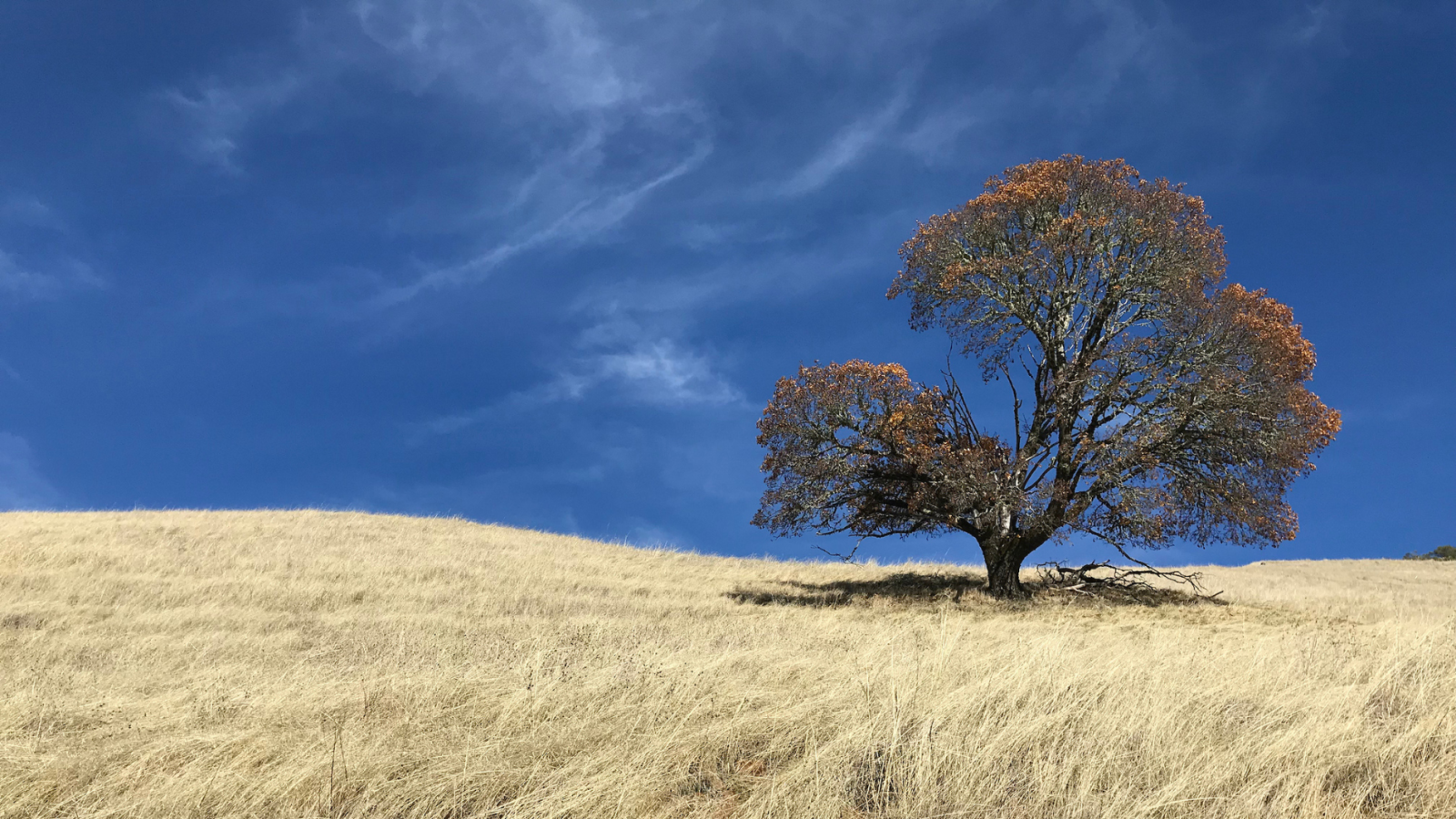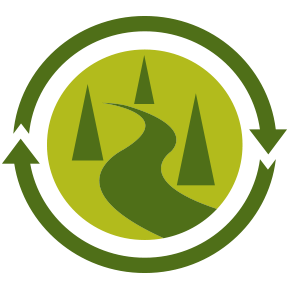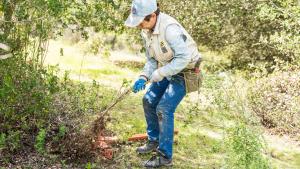Sudden Oak Death Blitz 2024
Participate in the state-wide community science project led by U.C. Berkeley and the Midpeninsula Regional Open Space District to track the spread of Sudden Oak Death (SOD) in the preserves. The 2024 SOD Blitz Project will take place from May 18-20.
Sudden oak death (SOD) is killing California oak trees throughout coastal California and Oregon. The disease is caused by the water mold pathogen Phytophthora ramorum. The pathogen was first noticed in California in 1994, and in Long Ridge Open Space Space Preserve in 2000.
Midpen is dedicated to mitigating its devastating effects on California coast live oak, black oak, Shreve's oak, canyon live oak and tanoak trees throughout the preserves.
Here are some commonly asked questions about the infection and Midpen’s commitment to reducing it’s impacts:
Why is the name “Sudden” Oak Death?
P. ramorum infections on oaks originally were called “sudden oak death” because of the rapid (2 to 4 weeks) browning of leaves without an apparent, prolonged period of visible decline. The pathogen spreads with moist winds, accumulation in stream water, soil moisture, and by moving infected vegetation and soil, including material accidentally carried by shoes and tires.
How many oak and tanoak trees has the pathogen killed?
The pathogen has killed more than one million oak and tanoak trees in California alone since its discovery.
How does Sudden Oak Death affect the rest of California’s ecosystem?
The pathogen also infects other species like California bay trees and coastal redwoods, which often act as carriers, spreading the spores from their leaves and needles. These diseased trees are more vulnerable to other pest organisms like fungi and bark beetles, which can kill them.
Native species like black-tailed deer and acorn woodpecker rely on oaks. As SOD kills oak trees, the species who rely on the trees suffer.
Dead and dying trees also increase the risk of wildfire, because they act as a fuel source.
What actions has Midpen taken so far?
In 2005, Midpen committed $350,000 over 10 years to find ways to prevent and treat SOD by working to identify resistant trees, preventing infection of heritage trees and participating in collaborative research. In 2006, Midpen began working closely with the California Oak Mortality Task Force to achieve these goals. Every year, Midpen partners with scientists on SOD research projects to better understand how to manage the preserves in light of this spreading disease.
It also partners with U.C. Berkeley for the annual SOD Blitz Project. SOD-blitzes take place every year after the rainy season, when the water pathogen that causes SOD is most likely to have spread.
This community science project is made up of volunteers who help gather potentially infected bay laurel leaves. They collect samples, log their data, and submit their samples to be tested in a lab. The following year, U.C. Berkeley publishes the results. Click here to see the results from 2023.
The volunteers look for bay laurel leaves instead of oak or tanoak leaves, because the few management options that are available to mitigate the spread of SOD are only effective before oaks and tanoaks are infected. Bay laurels are indicators as to whether the disease is in the area before oaks and tanoaks are infected.
Some land management techniques include sanitation, chemical preventative treatments, and bay removal.
To prevent the unintentional spread of sudden oak death, Midpen field and construction crews follow clean practices when working in infected areas to limit its spread into new areas.
Please note that Midpen may close certain trails during the rainy season to assist in controlling the spread of SOD. Follow our social media and website to stay updated on trail closures.
Can I help?
Yes, please! Each of us can take simple actions like staying on trails, cleaning our shoes, pet’s paws, and tires both before and after your visit to any preserve. Oftentimes, you’ll also see boot cleaning bristles available at Midpen trailheads. Please brush away, both before and after your visit!
Participating in the SOD Blitz Survey Project is also a crucial way to help in the fight to mitigate this disease. Midpen’s 2024 SOD-blitz will take place on May 18-20, but there are several happening statewide throughout May. Find one near you.




